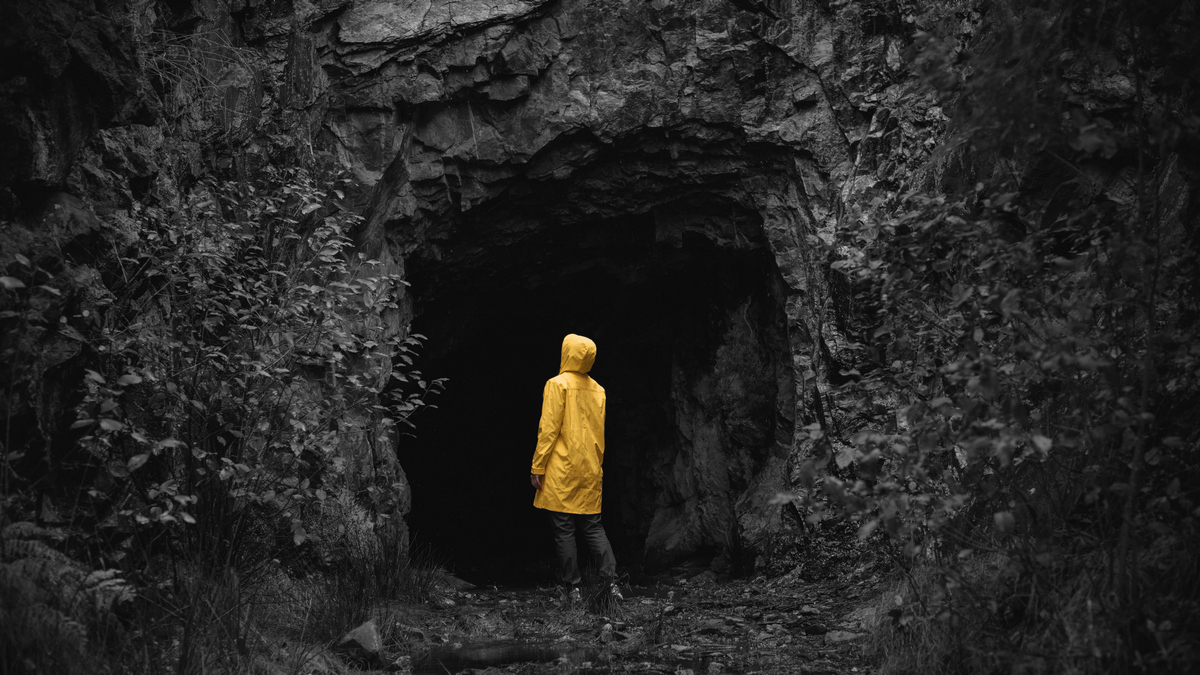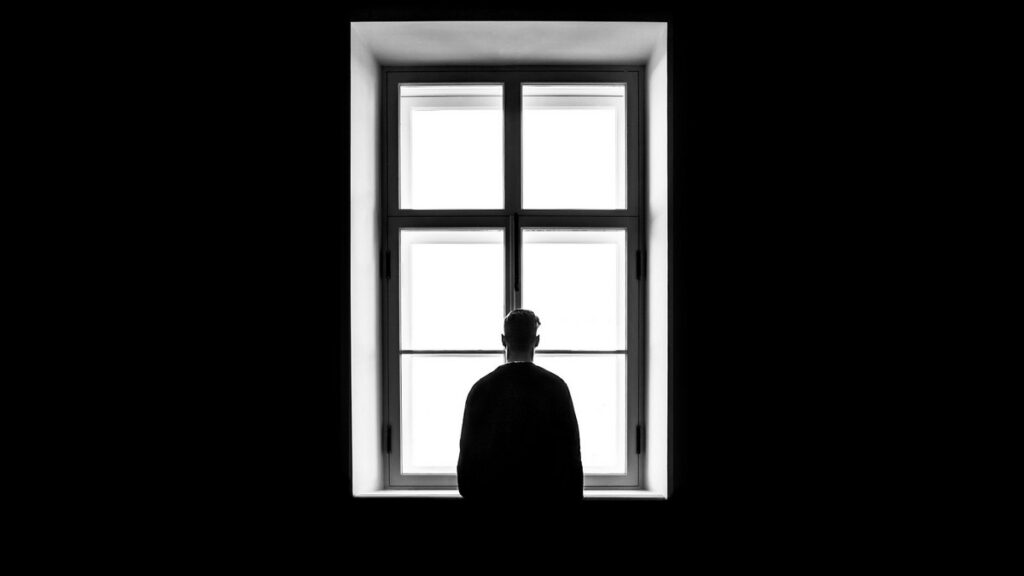Science
The Monk Who Saw the Future: Did an 11th-Century Benedictine Beat Astronomers?
17 February 2026

Human beings are wired to long for the extraordinary – it opposes everyday life and goes beyond our everyday experiences. This pull toward the inexplicable is woven into the very fabric of our existence, persisting even in our hyper-rational, secular age. In recent years, we’ve seen a surge in collective obsession with the uncanny. From surreal art and ghost stories to crystals, tarot, and full-blown conspiracy rabbit holes, the uncanny has gone mainstream. But why now? What’s driving this national appetite for the eerie, the mystical, and the extraordinary – and what does it say about who we are today?
„What a weird world, huh?” – Jeffrey Beaumont (Kyle MacLachlan) asks in one of the iconic scenes from David Lynch’s cult classic Blue Velvet. That line still echoes. And now, in the wake of David Lynch’s death, it hits harder than ever. America’s poet of the bizarre is gone, and the loss isn’t just personal for fans. It feels like a cultural gut punch. A reminder of what we’ve lost, and maybe what we’re losing still. His legacy forces us to confront a bigger question: whatever happened to genuine wonder in our 21st-century reality? Because let’s be real – we’re living in a world that’s lost its magic.
David Lynch’s unsettling worlds – from the eerie small-town secrets of Twin Peaks to the psychedelic nightmares of Lost Highway and Mulholland Drive – have permanently burned themselves into our collective psyche. The proof? Just look at the internet frenzy over the planned Twin Peaks Museum in Łódź. Fans lost their damn minds. This begs the question: Are we actually craving a glimpse into reality’s darker dimensions? Or is this just another nostalgia trip in our endless reboot culture?

The term das Unheimliche – “the uncanny” – was first coined by German psychiatrist Ernst Jentsch. However, it was Sigmund Freud who truly put it on the map. For Freud, the uncanny was that deeply unsettling feeling you get when something is both eerily familiar and completely alien at the same time. Here’s where it gets juicy: Freud believed the uncanny isn’t just creepy for creepiness’ sake – it’s our repressed fears and desires bubbling back to the surface in disguise. Think about vampires. These iconic monsters aren’t just spooky; they mix ancient anxieties with forbidden sexual urges, making them textbook examples of how our buried impulses refuse to stay buried.
While the concept of “the uncanny” still pops up in psychology textbooks these days, it’s really found its home in cultural studies, literature, philosophy, and anthropology. This whole business of “the return of the repressed” ties perfectly into Max Weber’s game-changing idea about the “disenchantment of the world” – how Western society has become obsessed with rationalizing everything under the sun. Ever since the Enlightenment, we’ve been slowly squeezing out mystery and intuition to make room for cold, hard logic. Faith? Gut feelings? They’re getting evicted from the modern mind. We’ve crowned reason as king, with Aristotle’s logic running the show. And just like we all learned in school, mathematics sits firmly on the throne as the “queen of sciences.”
Recommended: Alien Abductions. Capturing Imagination, Not Children
History makes one thing crystal clear: you can’t spreadsheet your way to enlightenment. Just look at Romanticism – a full-throated rebellion that rose from the ashes of the Enlightenment and served as rationality’s much-needed reality check. Ironically, many of today’s scholars trace their intellectual roots back to the very Age of Reason thinkers the Romantics were pushing against. But the Romantics weren’t anti-science or anti-progress. They weren’t Luddites waving pitchforks at microscopes. They just understood something essential: human experience can’t be fully mapped with numbers alone. Wonder, intuition, raw emotion – the sublime – these were the tools they used to explore the parts of reality that logic alone couldn’t touch.
Related: The Fantasy Crisis. What Is Missing in Today’s Fictional World Productions?
We live in a secularized world today. What’s rational is viewed positively, while phenomena we might call “uncanny” are treated with at least suspicion. Value is placed only on what can be framed in numbers and charts – like social media post views, sales figures, or (God forbid) a researcher’s count of indexed publications. (The actual quality of these is increasingly absent from the discussion, but that’s a topic for another article). Yet simultaneously, we’re witnessing a growing fascination with what might be termed the uncanny. This trend reveals humanity’s fundamental contradiction – our torn nature between the rational and the extraordinary.
The growing fascination with the uncanny finds confirmation in the recent surge of interest in alternative, non-institutional forms of religiosity – a trend often labeled as post-secularism. Scholar Agata Bielik-Robson, in her afterword to the anthology Drzewo poznania. Postsekularyzm w przekładach i komentarzach (The Tree of Knowledge: Post-Secularism in Translations and Commentaries), argues that modern religiosity helps uncover what modernity and the disenchanted world have repressed.
These emerging spiritual movements are totally vibing with today’s obsession with the mystical. In Poland, this trend has its own epicenter – Podlasie, now legendary in pop culture as the mysterious realm of Szeptuchy (think: village witches keeping ancient folk magic alive). Here’s the thing: these healers are the real deal. Anthropologists actually study them. But for most Poles? They’ve become this creepy-cool element of Polish–Belarusian borderland folklore, kinda like that show Kruk. Szepty słychać po zmroku (Raven. Whispers Can Be Head After Dark) which made them into this exotic attraction for city folks. On one hand, the uncanny becomes another form of exoticizing the unfamiliar and “other.” On the flip side, it reveals our deep craving for spiritual meaning in this secularized world. A hunger that rational modernity just can’t satisfy.
The uncanny is having a serious moment in today’s culture. In the newly released Polish edition of The Weird and the Eerie, British philosopher and cultural critic Mark Fisher argues that these very ideas – the weird and the eerie – aren’t just fringe anymore. They’ve become central to 20th- and 21st-century art. You can spot them everywhere. In Christopher Nolan’s reality-warping films, Margaret Atwood’s dystopian nightmares, and, of course, the surreal dreamscapes of David Lynch. In our hyper-rational, late-capitalist world, culture has become one of the only safe zones left for the uncanny to thrive. Why? Because we’re only willing to engage with the strange and unsettling when it’s clearly labeled fiction.
However, this doesn’t mean the uncanny has been entirely pushed out of our rational, profit-driven world. In her 2024 book Cultish: The Language of Fanaticism, American linguist Amanda Montell argues that modern business models – like multi-level marketing (MLM) – are operating with the same language as religious cults. According to Montell, MLMs, which rely on convincing people to sell products and recruit others into the system, mirror the mechanisms of cult behavior. What we have here is a paradox. Magical thinking has found its way into one of the most seemingly rational domains of modern life – business.

See also: Should We Trust Our Intuition? The Power of the Hunch
Our fascination with the uncanny reveals something fundamental: rationalism just can’t fully satisfy our cognitive needs and ambitions. While we live in a disenchanted world, one that’s stripped of magic and mystery, we still yearn to experience what lies beyond the everyday. This need sometimes manifests in controversial or socially unacceptable ways – like conspiracy theories or the rise of internet “experts” in alternative medicine. It’s clear though that the marvelous and the strange can’t be fully erased from our lives. There’s no single answer to explain this, but in the spirit of Freudian psychoanalysis, we might propose that humans are not purely rational beings.
Our fascination with the “weird and uncanny” can be understood as a form of sublimation – replacing socially taboo desires with creative expression. This dynamic plays out everywhere, from art and culture to the more surprising realm of business. But when it comes to the business world, the ethical concerns become harder to ignore. We’re increasingly seeing troubling attempts to capitalize on humanity’s timeless craving for mystery and the unknown.
Translated, edited, and compiled from the Polish version by Joanna Sarata
Polish version: Świat bez tajemnic nudzi. Ludzie szukają tego, co niesamowite
Science
17 February 2026



Zmień tryb na ciemny